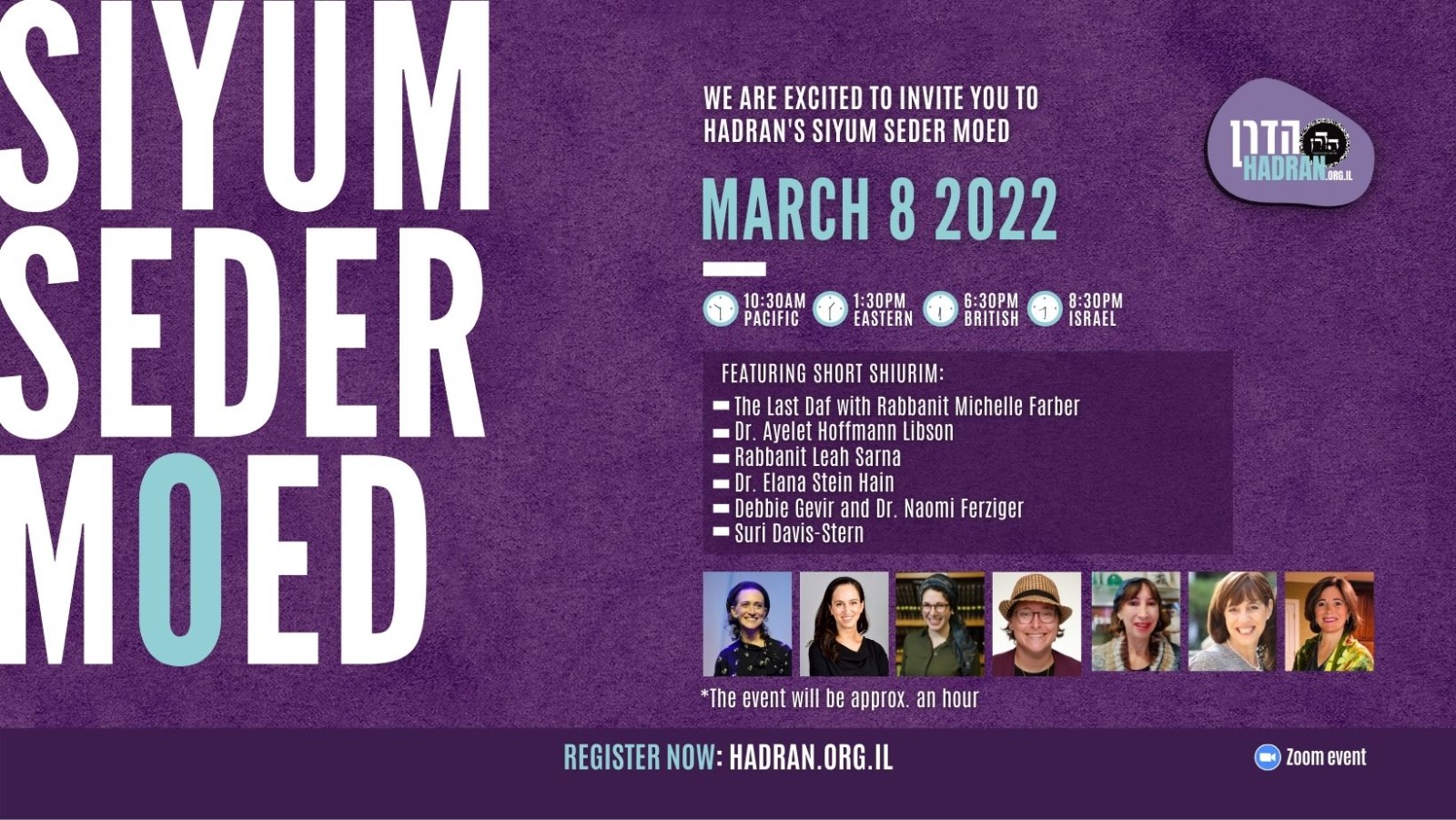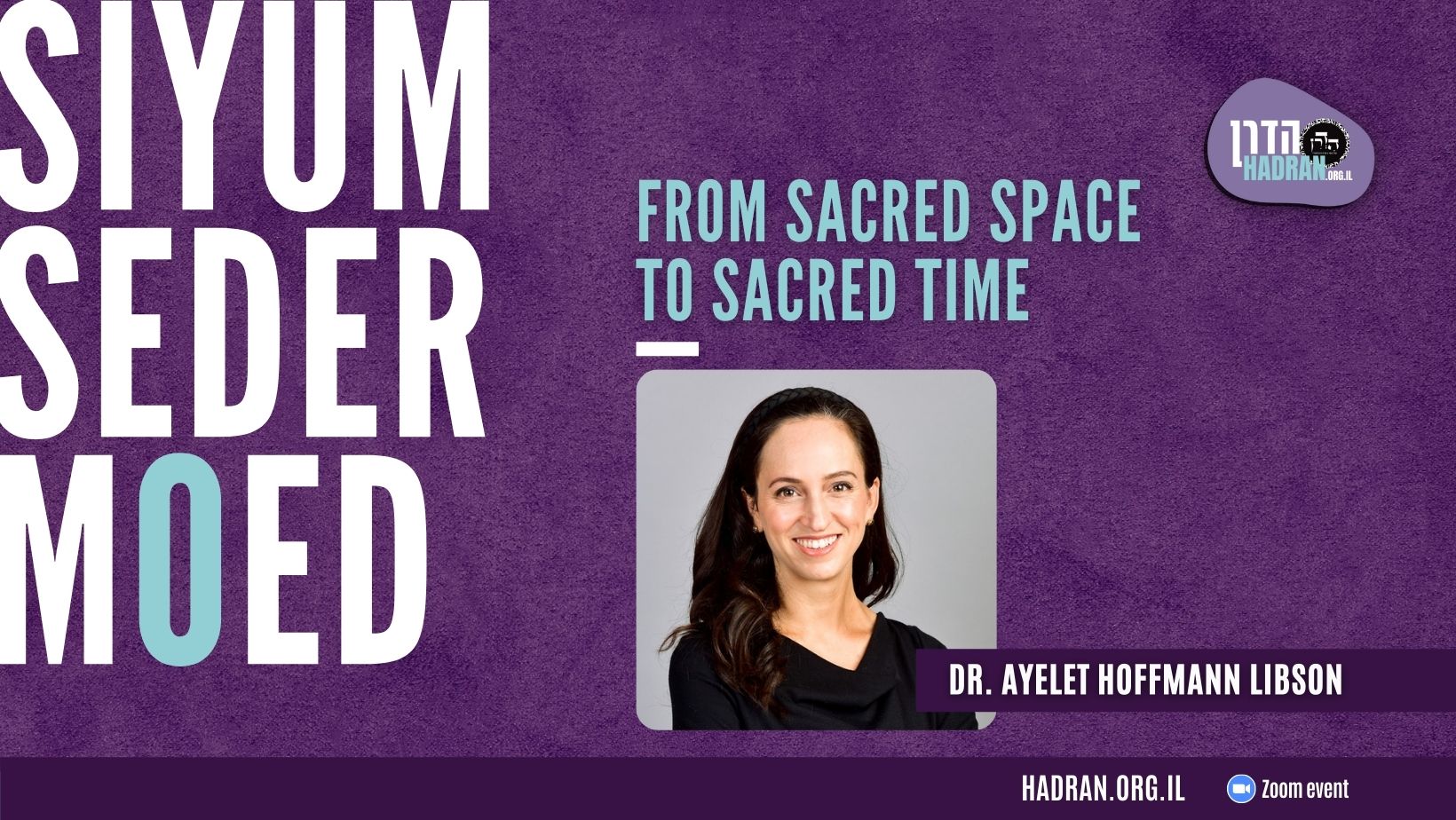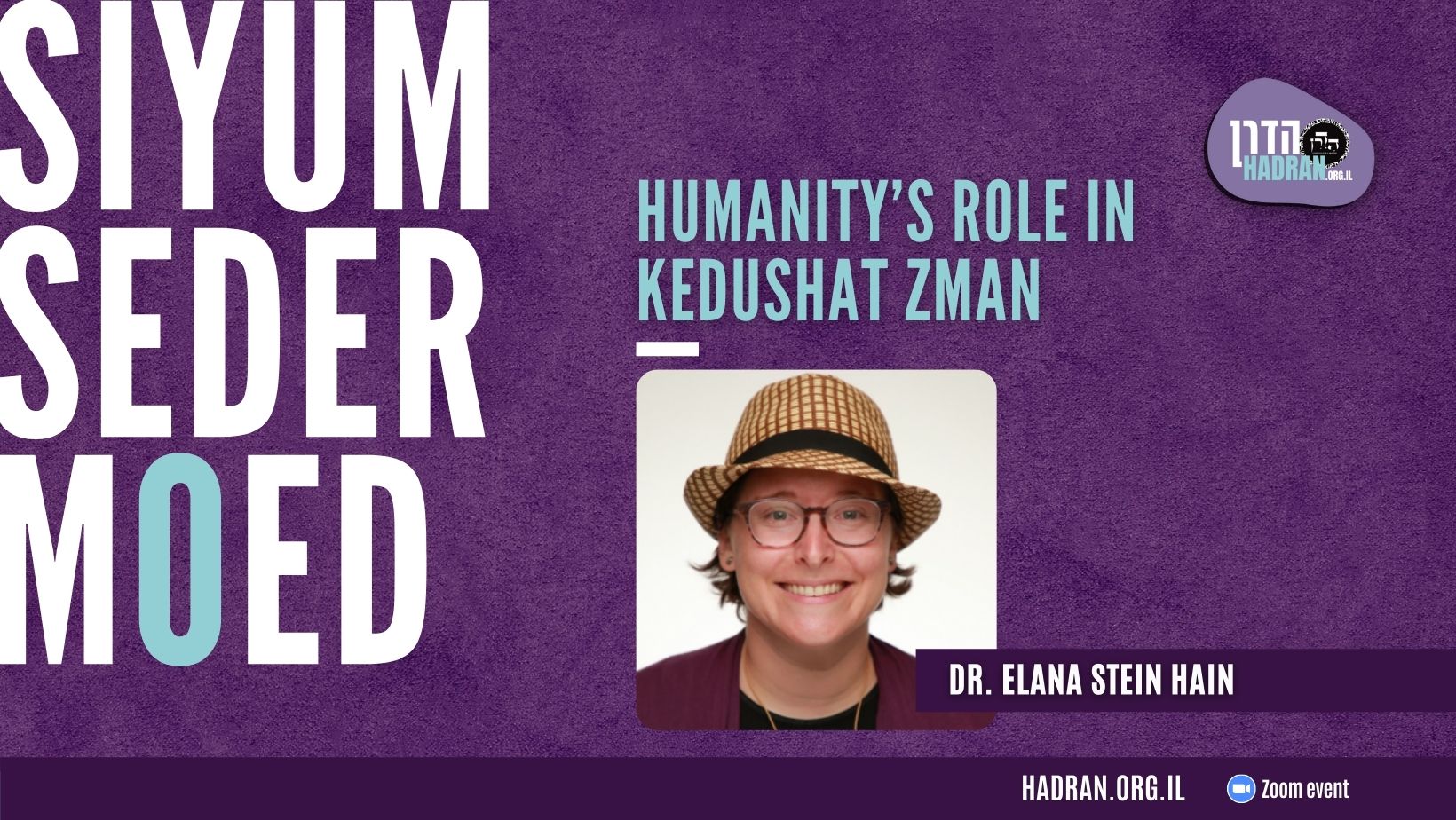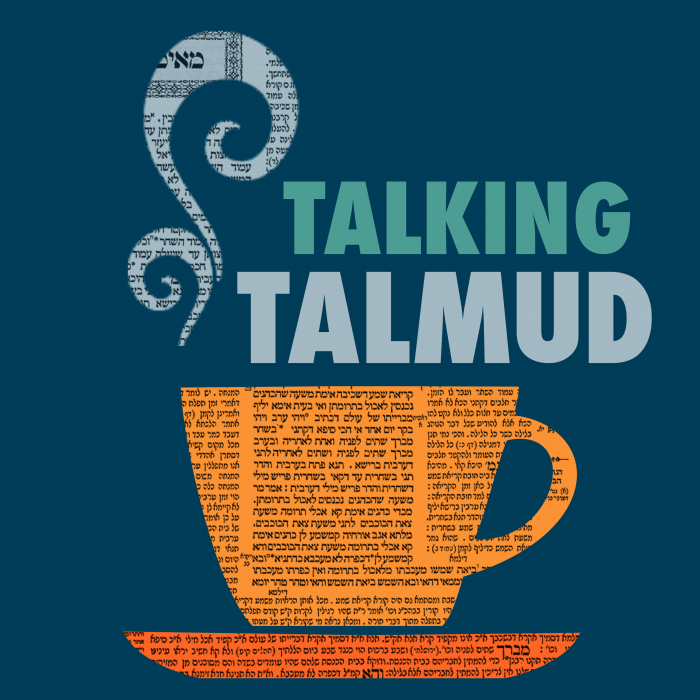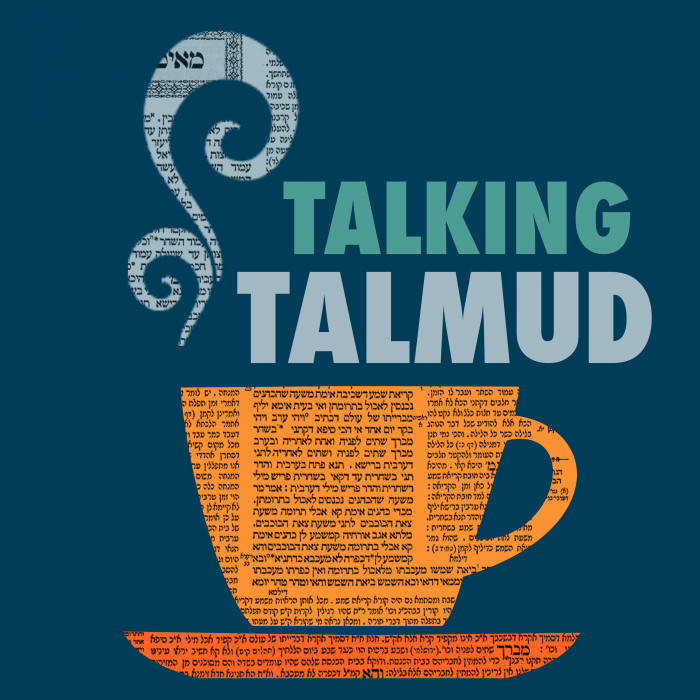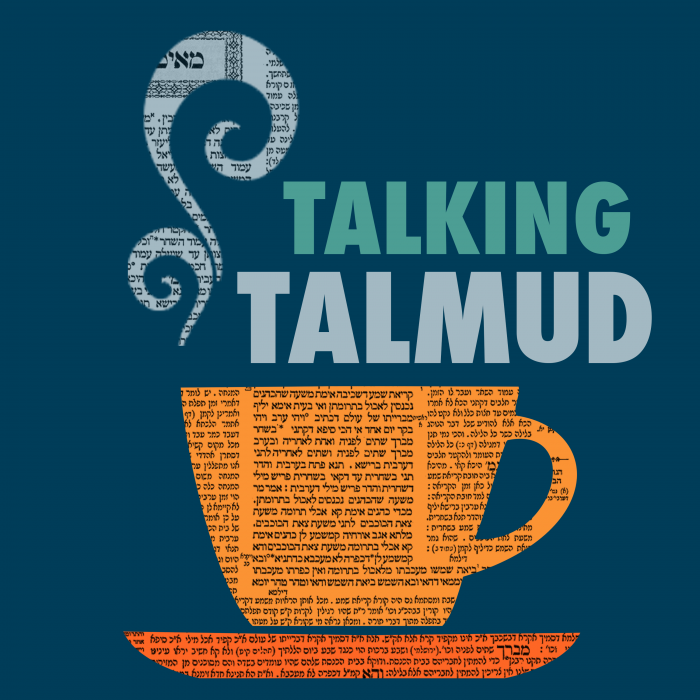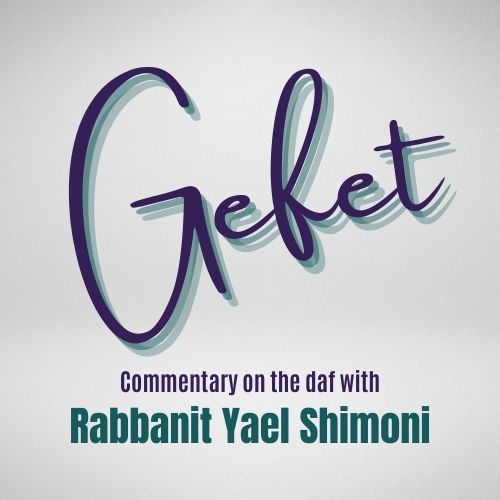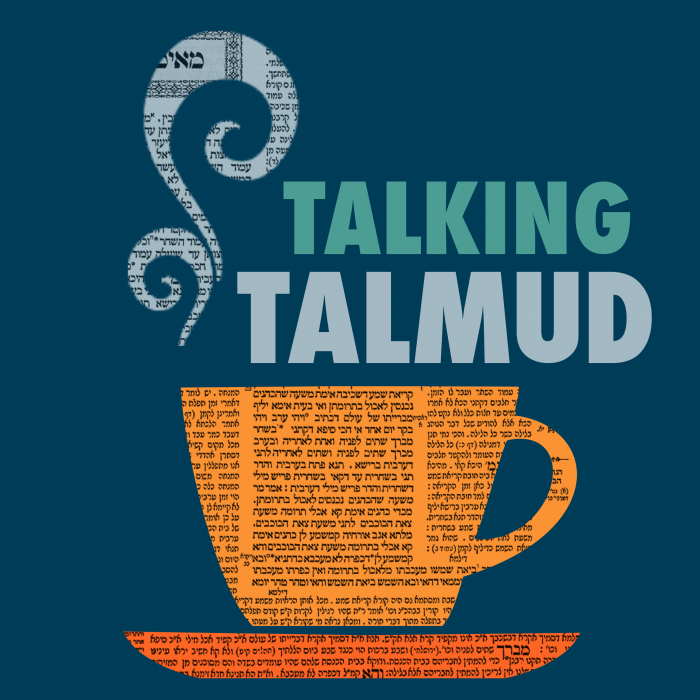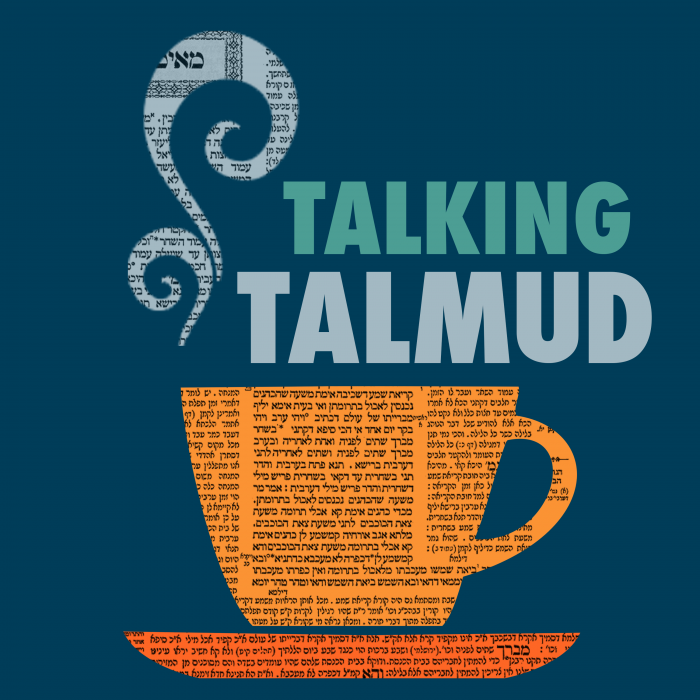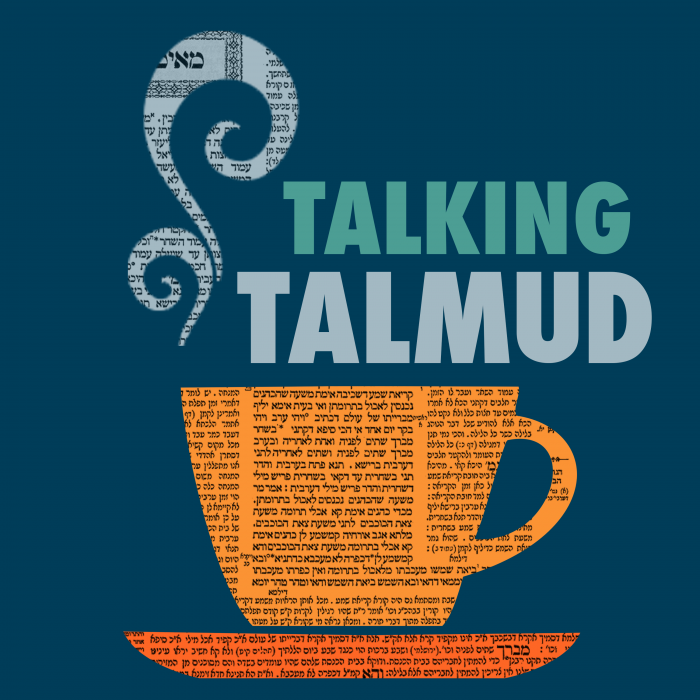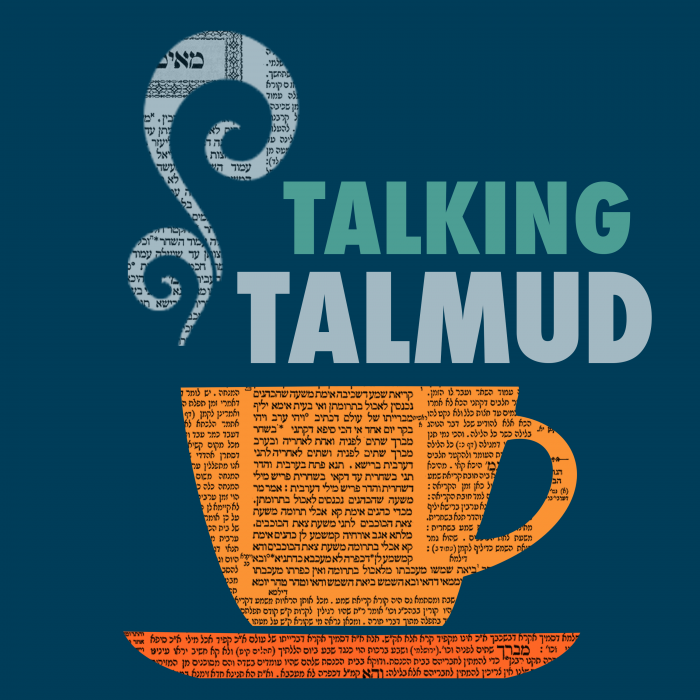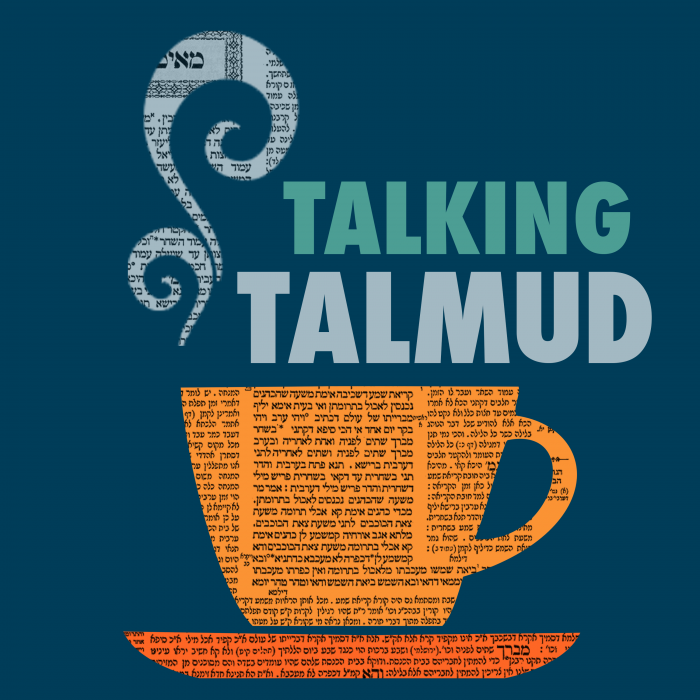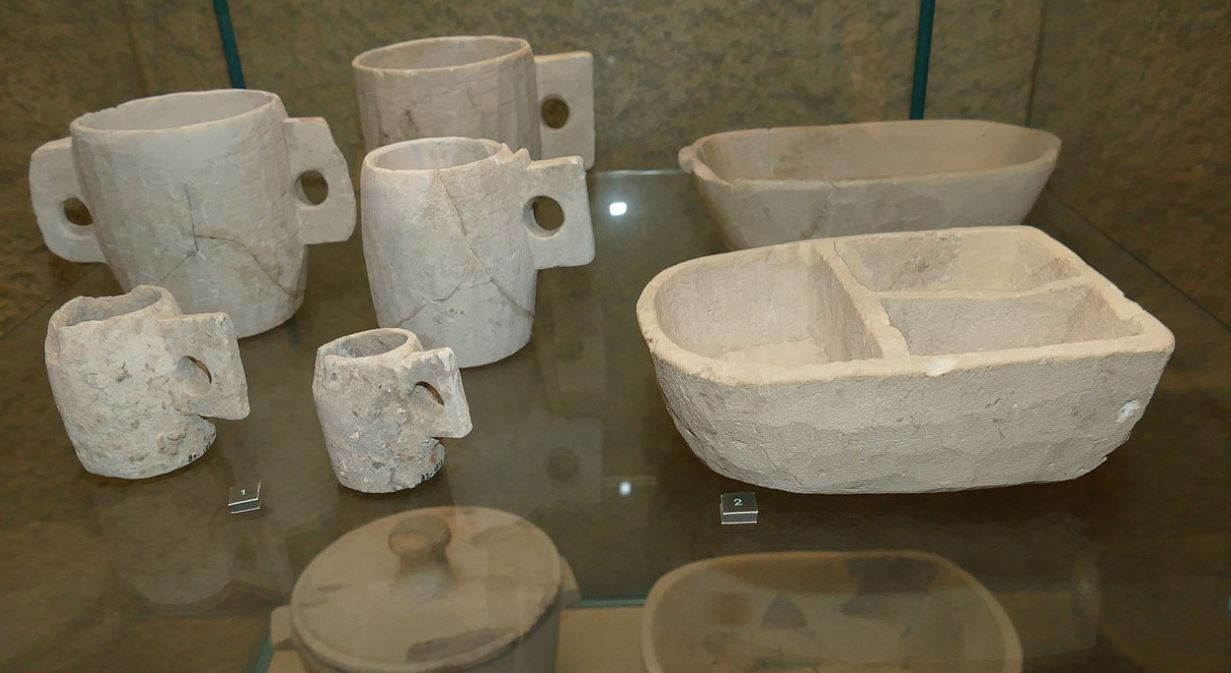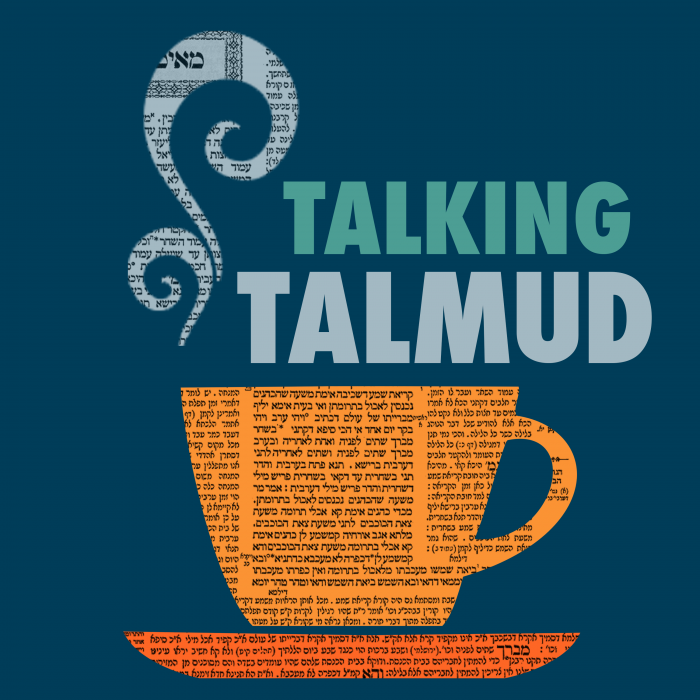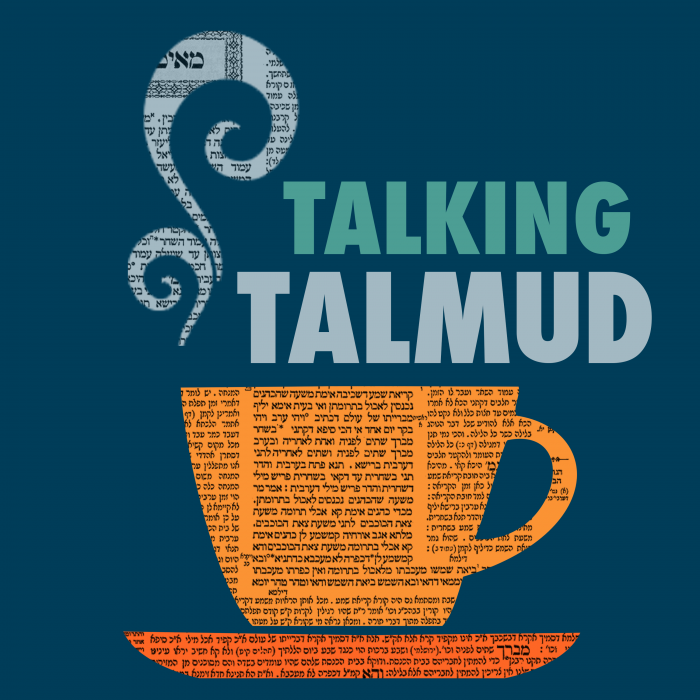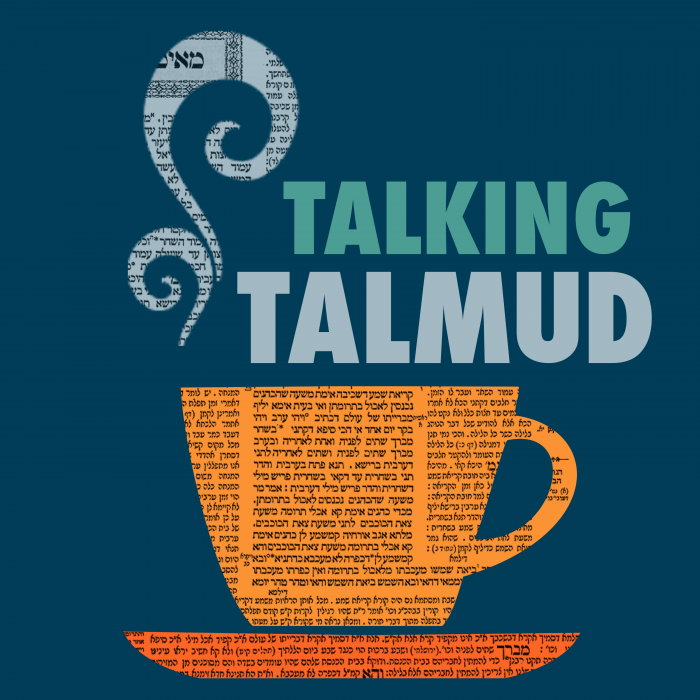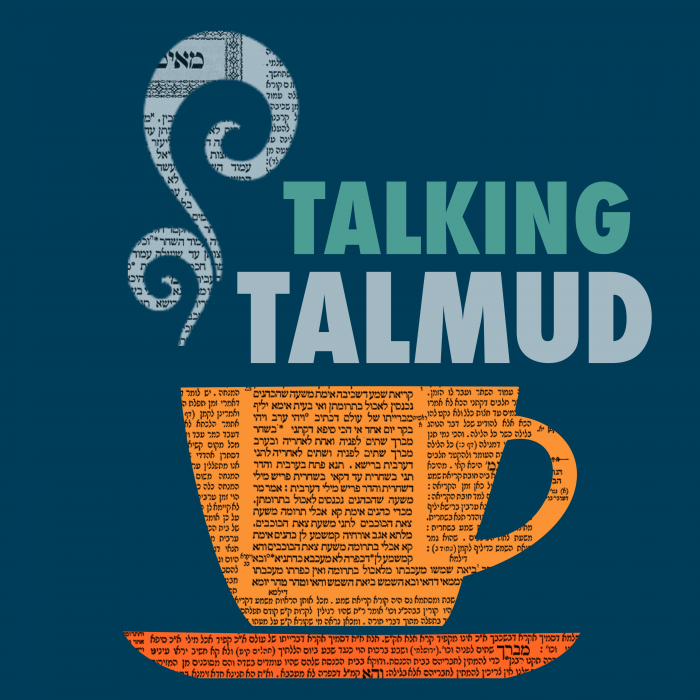Chagigah 13
בְּבָתֵּי גַוָּאֵי, הָא בְּבָתֵּי בָרָאֵי. וְאָמַר רַב אַחָא בַּר יַעֲקֹב: עוֹד רָקִיעַ אֶחָד יֵשׁ לְמַעְלָה מֵרָאשֵׁי הַחַיּוֹת, דִּכְתִיב: ״וּדְמוּת עַל רָאשֵׁי הַחַיָּה רָקִיעַ כְּעֵין הַקֶּרַח הַנּוֹרָא״.
to the inner houses, where there is only light; that source, according to which He is surrounded by darkness, is referring to the outer houses. And Rav Aḥa bar Ya’akov said: There is one more firmament above these, which is above the heads of the divine creatures, as it is written: “And over the heads of the divine creatures there was the likeness of a firmament, like the color of the terrible ice” (Ezekiel 1:22).
עַד כָּאן יֵשׁ לְךָ רְשׁוּת לְדַבֵּר, מִכָּאן וְאֵילָךְ — אֵין לְךָ רְשׁוּת לְדַבֵּר, שֶׁכֵּן כָּתוּב בְּסֵפֶר בֶּן סִירָא: ״בַּמּוּפְלָא מִמְּךָ אַל תִּדְרוֹשׁ, וּבַמְכוּסֶּה מִמְּךָ אַל תַּחְקוֹר. בַּמֶּה שֶׁהוֹרְשֵׁיתָ הִתְבּוֹנֵן, אֵין לְךָ עֵסֶק בַּנִּסְתָּרוֹת״. תַּנְיָא, אָמַר רַבָּן יוֹחָנָן בֶּן זַכַּאי: מָה תְּשׁוּבָה הֱשִׁיבַתּוּ בַּת קוֹל לְאוֹתוֹ רָשָׁע בְּשָׁעָה שֶׁאָמַר ״אֶעֱלֶה עַל בָּמֳתֵי עָב אֶדַּמֶּה לְעֶלְיוֹן״ — יָצְתָה בַּת קוֹל וְאָמְרָה לוֹ: רָשָׁע בֶּן רָשָׁע, בֶּן בְּנוֹ שֶׁל נִמְרוֹד הָרָשָׁע, שֶׁהִמְרִיד כָּל הָעוֹלָם כּוּלּוֹ עָלָיו בְּמַלְכוּתוֹ —
The Gemara comments: Until here, you have permission to speak; from this point forward you do not have permission to speak, as it is written in the book of Ben Sira: Seek not things concealed from you, nor search those hidden from you. Reflect on that which is permitted to you; you have no business with secret matters. It is taught in a baraita: Rabban Yoḥanan ben Zakkai said: What response did the Divine Voice provide to that wicked man, Nebuchadnezzar, when he said: “I will ascend above the heights of the clouds; I will be like the Most High” (Isaiah 14:14), thereby intending to rise to heaven? A Divine Voice came and said to him: Wicked man, son of a wicked man, descendant, i.e., follower of the ways, of Nimrod the wicked, who caused the entire world to rebel against Him during the time of his reign.
כַּמָּה שְׁנוֹתָיו שֶׁל אָדָם — שִׁבְעִים שָׁנָה, שֶׁנֶּאֱמַר: ״יְמֵי שְׁנוֹתֵינוּ בָהֶם שִׁבְעִים שָׁנָה וְאִם בִּגְבוּרוֹת שְׁמוֹנִים שָׁנָה״. וַהֲלֹא מִן הָאָרֶץ עַד לָרָקִיעַ מַהֲלַךְ חֲמֵשׁ מֵאוֹת שָׁנָה, וְעוֹבְיוֹ שֶׁל רָקִיעַ מַהֲלַךְ חֲמֵשׁ מֵאוֹת שָׁנָה, וְכֵן בֵּין כׇּל רָקִיעַ וְרָקִיעַ.
How many are the years of man? Seventy years, as it is stated: “The span of our life is seventy years, or if we are strong, eighty years” (Psalms 90:10). Now is there not from the earth to the firmament a walking distance of five hundred years, and the thickness of the firmament itself is a walking distance of five hundred years, and a similar distance exists between each and every one of the firmaments?
לְמַעְלָה מֵהֶן — חַיּוֹת הַקֹּדֶשׁ. רַגְלֵי הַחַיּוֹת כְּנֶגֶד כּוּלָּם, קַרְסוּלֵי הַחַיּוֹת כְּנֶגֶד כּוּלָּן, שׁוֹקֵי הַחַיּוֹת כְּנֶגֶד כּוּלָּן, רְכוּבֵּי הַחַיּוֹת כְּנֶגֶד כּוּלָּן, יַרְכֵי הַחַיּוֹת כְּנֶגֶד כּוּלָּן, גּוּפֵי הַחַיּוֹת כְּנֶגֶד כּוּלָּן, צַוְּארֵי הַחַיּוֹת כְּנֶגֶד כּוּלָּן, רָאשֵׁי הַחַיּוֹת כְּנֶגֶד כּוּלָּן, קַרְנֵי הַחַיּוֹת כְּנֶגֶד כּוּלָּן. לְמַעְלָה מֵהֶן — כִּסֵּא כָּבוֹד. רַגְלֵי כִּסֵּא הַכָּבוֹד כְּנֶגֶד כּוּלָּן, כִּסֵּא הַכָּבוֹד כְּנֶגֶד כּוּלָּן, מֶלֶךְ אֵל חַי וְקַיָּם רָם וְנִשָּׂא שׁוֹכֵן עֲלֵיהֶם, וְאַתָּה אָמַרְתָּ: ״אֶעֱלֶה עַל בָּמֳתֵי עָב אֶדַּמֶּה לְעֶלְיוֹן״ — ״אַךְ אֶל שְׁאוֹל תּוּרָד אֶל יַרְכְּתֵי בוֹר״.
And above them, above all the firmaments, are the divine creatures. The feet of the divine creatures correspond in distance to all the firmaments; the ankles of the animals correspond to all of them, the shins of the animals correspond to all of them, the knees of the animals correspond to all of them, the thighs of the animals correspond to all of them, the bodies of the animals correspond to all of them, the necks of the animals correspond to all of them, the heads of the animals correspond to all of them, and the horns of the animals correspond to all of them. Above them is the Throne of Glory: The feet of the Throne of Glory correspond to all of them, the Throne of Glory corresponds to all of them, and the living, almighty, lofty, exalted King dwells above them. And you, Nebuchadnezzar, say: “I will ascend above the heights of the clouds; I will be like the Most High” (Isaiah 14:15), but the next verse states: “Yet you shall be brought down to the netherworld, to the uttermost parts of the pit” (Isaiah 14:15).
וְלֹא בַּמֶּרְכָּבָה בְּיָחִיד. תָּנֵי רַבִּי חִיָּיא: אֲבָל מוֹסְרִין לוֹ רָאשֵׁי פְרָקִים. אָמַר רַבִּי זֵירָא: אֵין מוֹסְרִין רָאשֵׁי פְרָקִים אֶלָּא לְאַב בֵּית דִּין, וּלְכׇל מִי שֶׁלִּבּוֹ דּוֹאֵג בְּקִרְבּוֹ. אִיכָּא דְּאָמְרִי, וְהוּא שֶׁלִּבּוֹ דּוֹאֵג בְּקִרְבּוֹ.
§ It is taught in the mishna, according to the Gemara’s explanation: Nor may one expound the Design of the Divine Chariot to an individual. Rabbi Ḥiyya taught: But one may transmit to him, an individual, the outlines of this topic, leaving him to comprehend the rest on his own. Rabbi Zeira said: One may transmit the outlines of the Design of the Divine Chariot only to the president of the court, who needs to know them due to his wisdom and meritorious deeds, and to anyone whose heart inside him is concerned, i.e., one who is concerned about his sins and desires to achieve full repentance. There are those who say that this does not refer to two separate individuals, but to the president of the court, whose heart inside him is concerned.
אָמַר רַבִּי אַמֵּי: אֵין מוֹסְרִין סִתְרֵי תוֹרָה אֶלָּא לְמִי שֶׁיֵּשׁ בּוֹ חֲמִשָּׁה דְבָרִים: ״שַׂר חֲמִשִּׁים, וּנְשׂוּא פָנִים, וְיוֹעֵץ, וַחֲכַם חֲרָשִׁים, וּנְבוֹן לָחַשׁ״. וְאָמַר רַבִּי אַמֵּי: אֵין מוֹסְרִין דִּבְרֵי תוֹרָה לְגוֹי, שֶׁנֶּאֱמַר: ״לֹא עָשָׂה כֵן לְכׇל גּוֹי וּמִשְׁפָּטִים בַּל יְדָעוּם״.
Rabbi Ami said: The secrets of the Torah may be transmitted only to one who possesses the following five characteristics: “The captain of fifty, and the man of favor, and the counselor, and the cunning charmer, and the skillful enchanter” (Isaiah 3:3). And Rabbi Ami said further: The words of Torah may not be transmitted to a gentile, as it is stated: “He has not dealt so with any nation, and as for His ordinances, they have not known them” (Psalms 147:20).
אֲמַר לֵיהּ רַבִּי יוֹחָנָן לְרַבִּי אֶלְעָזָר: תָּא אַגְמְרָךְ בְּמַעֲשֵׂה הַמֶּרְכָּבָה, אֲמַר לֵיהּ: לָא קַשַּׁאי. כִּי קַשׁ — נָח נַפְשֵׁיהּ דְּרַבִּי יוֹחָנָן. אֲמַר לֵיהּ רַבִּי אַסִּי: תָּא וְאַגְמְרָךְ בְּמַעֲשֵׂה מֶרְכָּבָה. אֲמַר לֵיהּ: אִי זְכַאי גְּמִירְתַּהּ מֵרַבִּי יוֹחָנָן רַבָּךְ.
§ The Gemara relates: Rabbi Yoḥanan said to Rabbi Elazar: Come and I will teach you the Design of the Divine Chariot. Rabbi Elazar said to him: I have not yet aged sufficiently, as one must be very settled in one’s mind for these studies. When he grew old, Rabbi Yoḥanan had already passed away. Rabbi Asi said to him: Come and I will teach you the Design of the Divine Chariot. He said to him: Had I merited, I would have learned it from Rabbi Yoḥanan, your teacher. It therefore appears that I am unworthy of studying it.
רַב יוֹסֵף הֲוָה גְּמִיר מַעֲשֵׂה הַמֶּרְכָּבָה. סָבֵי דְפוּמְבְּדִיתָא הֲווֹ תָּנוּ בְּמַעֲשֵׂה בְרֵאשִׁית. אֲמַרוּ לֵיהּ: (לִיגְמוֹר לַן) [לַיגְמְרַן] מָר מַעֲשֵׂה מֶרְכָּבָה. אֲמַר לְהוּ: אַגְמְרוּן לִי מַעֲשֵׂה בְרֵאשִׁית. בָּתַר דְּאַגְמְרוּהּ, אֲמַרוּ לֵיהּ: לַיגְמְרַון מָר בְּמַעֲשֵׂה מֶרְכָּבָה! אֲמַר לְהוּ: תְּנֵינָא בְּהוּ ״דְּבַשׁ וְחָלָב תַּחַת לְשׁוֹנֵךְ״, דְּבָרִים הַמְּתוּקִין מִדְּבַשׁ וְחָלָב — יְהוּ תַּחַת לְשׁוֹנֵךְ.
The Gemara relates: Rav Yosef would study the Design of the Divine Chariot and was familiar with the subject, whereas the Elders of Pumbedita would study the act of Creation. They said to Rav Yosef: Let the Master teach us the Design of the Divine Chariot. He said to them: You teach me the act of Creation. After they taught him that subject, they said to him: Let the Master teach us the Design of the Divine Chariot. He said to them: We learned with regard to them the secrets of the Torah: “Honey and milk are under your tongue” (Song of Songs 4:11), meaning that matters that are sweeter than honey and milk should remain under your tongue. In other words, one should not speak of such matters, and anyone who is familiar with them may not reveal them to others.
רַבִּי אֲבָהוּ אָמַר מֵהָכָא: ״כְּבָשִׁים לִלְבוּשֶׁךָ״, דְּבָרִים שֶׁהֵן כִּבְשׁוֹנוֹ שֶׁל עוֹלָם — יִהְיוּ תַּחַת לְבוּשֶׁךָ. אֲמַרוּ לֵיהּ: תְּנֵינַן בְּהוּ עַד ״וַיֹּאמֶר אֵלַי בֶּן אָדָם״. אֲמַר לְהוּ: הֵן הֵן מַעֲשֵׂה הַמֶּרְכָּבָה.
Rabbi Abbahu said: It is derived from here, from the following verse: “The lambs [kevasim] will be for your clothing” (Proverbs 27:26), which he expounds as though it were written with the letter shin, kevashim, meaning concealed matters: Things that constitute the concealed matters of the world should be under your clothing; you should not reveal them. When the Elders of Pumbedita saw that Rav Yosef was not going to teach them, they said to him: We have learned them, the verses concerning the Design of the Divine Chariot written in the book of Ezekiel, up to the verse “And He said to me, son of man” (Ezekiel 2:1). He said to them: If so, these verses are the very essence of the Design of the Divine Chariot, as they provide the main details of the topic.
מֵיתִיבִי: עַד הֵיכָן מַעֲשֵׂה הַמֶּרְכָּבָה? רַבִּי אוֹמֵר: עַד ״וָאֵרֶא״ בָּתְרָא, רַבִּי יִצְחָק אוֹמֵר: עַד ״הַחַשְׁמַל״. עַד ״וָאֵרֶא״ מַגְמְרִינַן, מִכָּאן וְאֵילָךְ מָסְרִינַן רָאשֵׁי פְרָקִים. אִיכָּא דְּאָמְרִי: עַד ״וָאֵרֶא״ מָסְרִינַן רָאשֵׁי פְרָקִים, מִכָּאן וְאֵילָךְ, אִם הוּא חָכָם מֵבִין מִדַּעְתּוֹ — אִין, אִי לָא — לָא.
The Gemara raises an objection to this from a baraita: Until where is the Design of the Divine Chariot related? Rabbi Yehuda HaNasi says: Until the latter “And I saw” (Ezekiel 1:27), not including the last verse. Rabbi Yitzḥak says: Until the word “the electrum” (Ezekiel 1:27). Neither of these opinions accord with Rav Yosef’s opinion that the Design of the Divine Chariot continues until the end of the chapter. The Gemara answers: Until “And I saw,” we teach those worthy of it; from this point forward, we transmit only the outlines. There are those who say: Until “And I saw,” we transmit the outlines; from this point forward, if he is wise and can understand of his own accord, yes, we teach him. If not, we do not teach him even the outlines.
וּמִי דָּרְשִׁינַן בְּחַשְׁמַל? וְהָא הָהוּא יָנוֹקָא דִּדְרַשׁ בְּחַשְׁמַל, וּנְפַקָא נוּרָא וַאֲכַלְתֵּיהּ! שָׁאנֵי יָנוֹקָא, דְּלָאו מָטֵי זִימְנֵיהּ.
The Gemara poses a question: And may one teach about the electrum of the Design of the Divine Chariot at all? But wasn’t there a certain youth who expounded the electrum, and fire came out and consumed him, showing that such study is highly dangerous? The Gemara answers: That youth was different, for his time to study such matters had not yet arrived. Therefore, he was punished.
אָמַר רַב יְהוּדָה: בְּרַם זָכוּר אוֹתוֹ הָאִישׁ לַטּוֹב, וַחֲנַנְיָה בֶּן חִזְקִיָּה שְׁמוֹ. אִלְמָלֵא הוּא — נִגְנַז סֵפֶר יְחֶזְקֵאל, שֶׁהָיוּ דְּבָרָיו סוֹתְרִין דִּבְרֵי תוֹרָה. מֶה עָשָׂה? הֶעֱלוּ לוֹ שְׁלוֹשׁ מֵאוֹת גַּרְבֵי שֶׁמֶן, וְיָשַׁב בַּעֲלִיָּיה וּדְרָשׁוֹ.
Rav Yehuda said: Indeed, that man is remembered for good, and Ḥananya ben Ḥizkiya was his name, because were it not for him, the book of Ezekiel would have been suppressed. Why did they wish to suppress it? Because they found that its words contradicted the words of Torah, as its later chapters contain many halakhot that appear not to accord with those of the Torah. What did he do? They brought up to him three hundred barrels of oil, for light and sustenance, and he sat in an upper chamber and expounded it, to reconcile its teachings with those of the Torah.
תָּנוּ רַבָּנַן: מַעֲשֶׂה בְּתִינוֹק אֶחָד שֶׁהָיָה קוֹרֵא בְּבֵית רַבּוֹ בְּסֵפֶר יְחֶזְקֵאל וְהָיָה מֵבִין בְּחַשְׁמַל, וְיָצְאָה אֵשׁ מֵחַשְׁמַל וּשְׂרָפַתּוּ, וּבִיקְשׁוּ לִגְנוֹז סֵפֶר יְחֶזְקֵאל. אָמַר לָהֶם חֲנַנְיָה בֶּן חִזְקִיָּה: אִם זֶה חָכָם — הַכֹּל חֲכָמִים הֵן?
The Sages taught: An incident occurred involving a youth who was reading the book of Ezekiel in the house of his teacher, and he was able to comprehend the electrum, and fire came out of the electrum and burned him. And they sought to suppress the book of Ezekiel due to the danger it posed. Ḥananya ben Ḥizkiya said to them: If this youth happened to be wise, are all people wise enough to understand this book?
מַאי חַשְׁמַל? אָמַר רַב יְהוּדָה:
The Gemara asks: What is the electrum? Rav Yehuda said:
חַיּוֹת אֵשׁ מְמַלְּלוֹת. בְּמַתְנִיתָא תָּנָא: עִתִּים חָשׁוֹת, עִתִּים מְמַלְּלוֹת. בְּשָׁעָה שֶׁהַדִּיבּוּר יוֹצֵא מִפִּי הַקָּדוֹשׁ בָּרוּךְ הוּא — חָשׁוֹת, וּבְשָׁעָה שֶׁאֵין הַדִּיבּוּר יוֹצֵא מִפִּי הַקָּדוֹשׁ בָּרוּךְ הוּא — מְמַלְּלוֹת.
It refers to speaking animals of fire. Electrum [ḥashmal] is an acrostic of this phrase [ḥayyot esh memallelot]. It was taught in a baraita: At times they are silent; at times they speak. When the divine speech emerges from the mouth of the Holy One, Blessed be He, they are silent; and when the divine speech does not emerge from the mouth of the Holy One, Blessed be He, they speak.
״וְהַחַיּוֹת רָצוֹא וָשׁוֹב כְּמַרְאֵה הַבָּזָק״. מַאי ״רָצוֹא וָשׁוֹב״? אָמַר רַב יְהוּדָה: כְּאוּר הַיּוֹצֵא מִפִּי הַכִּבְשָׁן. מַאי ״כְּמַרְאֵה הַבָּזָק״? אָמַר רַבִּי יוֹסֵי בַּר חֲנִינָא: כְּאוּר הַיּוֹצֵא מִבֵּין הַחֲרָסִים.
§ The verse states: “And the divine creatures ran and returned like the appearance of a flash of lightning [bazak]” (Ezekiel 1:14). What is the meaning of “ran and returned”? Rav Yehuda said: Like fire that is emitted from a furnace, whose flame is continuously bursting out and withdrawing. What is the meaning of “like the appearance of a flash of lightning”? Rabbi Yosei bar Ḥanina said: Like the fire that is emitted from between pieces of earthenware used for refining gold, as an additional meaning ascribed to the word bazak is shards of earthenware.
״וָאֵרֶא וְהִנֵּה רוּחַ סְעָרָה בָּאָה מִן הַצָּפוֹן עָנָן גָּדוֹל וְאֵשׁ מִתְלַקַּחַת וְנוֹגַהּ לוֹ סָבִיב וּמִתּוֹכָהּ כְּעֵין הַחַשְׁמַל מִתּוֹךְ הָאֵשׁ״. לְהֵיכָן אֲזַל? אֲמַר רַב יְהוּדָה אָמַר רַב: שֶׁהָלַךְ לִכְבּוֹשׁ אֶת כָּל הָעוֹלָם כּוּלּוֹ תַּחַת נְבוּכַדְנֶצַּר הָרָשָׁע. וְכׇל כָּךְ לָמָּה? שֶׁלֹּא יֹאמְרוּ אוּמּוֹת הָעוֹלָם: בְּיַד אוּמָּה שְׁפָלָה מָסַר הַקָּדוֹשׁ בָּרוּךְ הוּא אֶת בָּנָיו. אָמַר הַקָּדוֹשׁ בָּרוּךְ הוּא: מִי גָּרַם לִי שֶׁאֶהְיֶה שַׁמָּשׁ לְעוֹבְדֵי פְסִילִים — עֲוֹנוֹתֵיהֶן שֶׁל יִשְׂרָאֵל הֵן גָּרְמוּ לִי.
The verse states: “And I looked and, behold, a stormy wind came out of the north, a great cloud, with a fire flashing up, so that a brightness was round about it; and out of its midst was like the color of electrum, out of the midst of the fire” (Ezekiel 1:4). The Gemara poses a question: Where did that wind go? Rav Yehuda said that Rav said: It went to conquer the entire world under the wicked Nebuchadnezzar. And why was all of this necessary? Why was it necessary that the entire world be subjected to his dominion? So that the nations of the world would not say: The Holy One, Blessed be He, delivered His children into the hands of a lowly nation. Since it was already decreed that the kingdom of Israel would fall into the hands of Nebuchadnezzar, God made him into a great conqueror, so that Israel would not be ashamed of being defeated by him. The Holy One, Blessed be He, said with regard to this: Who caused Me to be an attendant to worshippers of molten images, forcing Me to wage their wars? It was the sins of Israel that led Me to do so.
״וָאֵרֶא הַחַיּוֹת וְהִנֵּה אוֹפַן אֶחָד בָּאָרֶץ אֵצֶל הַחַיּוֹת״, אָמַר רַבִּי אֶלְעָזָר: מַלְאָךְ אֶחָד שֶׁהוּא עוֹמֵד בָּאָרֶץ, וְרֹאשׁוֹ מַגִּיעַ אֵצֶל הַחַיּוֹת. בְּמַתְנִיתָא תָּנָא: סַנְדַּלְפוֹן שְׁמוֹ, הַגָּבוֹהַּ מֵחֲבֵרוֹ מַהֲלַךְ חֲמֵשׁ מֵאוֹת שָׁנָה. וְעוֹמֵד אֲחוֹרֵי הַמֶּרְכָּבָה וְקוֹשֵׁר כְּתָרִים לְקוֹנוֹ. אִינִי? וְהָכְתִיב: ״בָּרוּךְ כְּבוֹד ה׳ מִמְּקוֹמוֹ״, מִכְּלָל דִּמְקוֹמוֹ לֵיכָּא דְּיָדַע לֵיהּ! דְּאָמַר שֵׁם אַתָּגָא וְאָזֵל וְיָתֵיב בְּרֵישֵׁיהּ.
Another verse in the same chapter states: “Now as I beheld the divine creatures, behold, one wheel [ofan] was upon the earth near the divine creatures” (Ezekiel 1:15). Rabbi Elazar said: This wheel is a certain angel who stands on the earth and its head reaches the divine creatures. It was taught in a baraita: This angel is named Sandalfon, who is taller than his colleague by a distance of five hundred years, and he stands behind the Divine Chariot and weaves crowns for his Maker. The Gemara asks: Is that so? Can crowns be woven for God? But isn’t it written: “Blessed be the Lord’s glory from His place” (Ezekiel 3:12), which proves by inference that no one knows His place? Therefore, how can crowns be woven for Him? Rather, it can be done by saying a name for the crown, and then the crown goes and sits on God’s head of its own accord.
אָמַר רָבָא: כׇּל שֶׁרָאָה יְחֶזְקֵאל, רָאָה יְשַׁעְיָה. לְמָה יְחֶזְקֵאל דּוֹמֶה — לְבֶן כְּפָר שֶׁרָאָה אֶת הַמֶּלֶךְ, וּלְמָה יְשַׁעְיָה דּוֹמֶה — לְבֶן כְּרַךְ שֶׁרָאָה אֶת הַמֶּלֶךְ. אָמַר רֵישׁ לָקִישׁ: מַאי דִּכְתִיב: ״אָשִׁירָה לַה׳ כִּי גָאֹה גָּאָה״ — שִׁירָה לְמִי שֶׁמִּתְגָּאֶה עַל הַגֵּאִים. דְּאָמַר מָר: מֶלֶךְ שֶׁבַּחַיּוֹת — אֲרִי, מֶלֶךְ שֶׁבַּבְּהֵמוֹת — שׁוֹר, מֶלֶךְ שֶׁבָּעוֹפוֹת — נֶשֶׁר, וְאָדָם מִתְגָּאֶה עֲלֵיהֶן, וְהַקָּדוֹשׁ בָּרוּךְ הוּא מִתְגָּאֶה עַל כּוּלָּן וְעַל כׇּל הָעוֹלָם כּוּלּוֹ.
§ Rava said: All that Ezekiel saw, the prophet Isaiah saw as well, but the latter did not find it necessary to describe his vision in such detail. To what may Ezekiel be compared? To a villager who saw the king and is excited by all the extravagances of the king’s palace and everything it contains, as he is unaccustomed to them. And to what may Isaiah be compared? To a city dweller who saw the king. Such an individual focuses on the encounter with the king, and is oblivious to all the distractions. Reish Lakish said: What is the meaning of that which is written: “I will sing to the Lord, for He is highly exalted” (Exodus 15:1)? It is fitting to sing to He Who is exalted above the exalted. As the Master said: The king of the beasts is the lion, the king of the domestic animals is the ox, the king of the birds is the eagle, and man is exalted and lords over them, but the Holy One, Blessed be He, is exalted above all of them and above the entire world, as the creatures that appear in the Divine Chariot are the ox, the lion, the eagle, and man.
כָּתוּב אֶחָד אוֹמֵר: ״וּדְמוּת פְּנֵיהֶם פְּנֵי אָדָם וּפְנֵי אַרְיֵה אֶל הַיָּמִין לְאַרְבַּעְתָּם וּפְנֵי שׁוֹר מֵהַשְּׂמֹאל לְאַרְבַּעְתָּן וְגוֹ׳״, וּכְתִיב: ״וְאַרְבָּעָה פָנִים לְאֶחָד פְּנֵי הָאֶחָד פְּנֵי הַכְּרוּב וּפְנֵי הַשֵּׁנִי פְּנֵי אָדָם וְהַשְּׁלִישִׁי פְּנֵי אַרְיֵה וְהָרְבִיעִי פְּנֵי נָשֶׁר״, וְאִילּוּ שׁוֹר לָא קָא חָשֵׁיב! אָמַר רֵישׁ לָקִישׁ: יְחֶזְקֵאל בִּיקֵּשׁ עָלָיו רַחֲמִים, וַהֲפָכוֹ לִכְרוּב. אָמַר לְפָנָיו: רִבּוֹנוֹ שֶׁל עוֹלָם! קָטֵיגוֹר יֵעָשֶׂה סָנֵיגוֹר?
The Gemara poses a question with regard to the animals of the Divine Chariot: One verse states: “As for the likeness of their faces, they had the face of a man; and the four had the face of a lion on the right side; and the four had the face of an ox on the left side” (Ezekiel 1:10). And it is also written: “And each one had four faces: The first face was the face of the cherub, and the second face was the face of a man, and the third the face of a lion, and the fourth the face of an eagle” (Ezekiel 10:14), but it does not include the face of an ox in this second list. Reish Lakish said: Ezekiel requested mercy with regard to it, i.e., the face of the ox, and had it turned into a cherub. He said before Him as follows: Master of the Universe. Shall an accuser [kateigor] become a defender [saneigor]? As the face of an ox recalls Israel’s sin of the Golden Calf, it would be preferable for there to be a different face on the Divine Chariot.
מַאי ״כְּרוּב״? אָמַר רַבִּי אֲבָהוּ: כְּרָבְיָא, שֶׁכֵּן בְּבָבֶל קוֹרִין לְיָנוֹקָא רָבְיָא. אֲמַר לֵיהּ רַב פָּפָּא לְאַבָּיֵי: אֶלָּא מֵעַתָּה, דִּכְתִיב: ״פְּנֵי הָאֶחָד פְּנֵי הַכְּרוּב וּפְנֵי הַשֵּׁנִי פְּנֵי אָדָם וְהַשְּׁלִישִׁי פְּנֵי אַרְיֵה וְהָרְבִיעִי פְּנֵי נָשֶׁר״, הַיְינוּ פְּנֵי כְרוּב הַיְינוּ פְּנֵי אָדָם? אַפֵּי רַבְרְבֵי וְאַפֵּי זוּטְרֵי.
The Gemara asks: What is the meaning of “cherub”? Rabbi Abbahu said: Like a baby [keravya], for in Babylonia they call a baby ravya. Rav Pappa said to Abaye: However, if that is so, what is the meaning of that which is written: “The first face was the face of the cherub, and the second face was the face of a man, and the third the face of a lion, and the fourth the face of an eagle”? The face of a cherub is the same as the face of a man; what is the difference between them? He replied: The difference is that the face of a man is referring to a large face, whereas the face of a cherub means the small face of a baby.
כָּתוּב אֶחָד אוֹמֵר: ״שֵׁשׁ כְּנָפַיִם שֵׁשׁ כְּנָפַיִם לְאֶחָד״, וְכָתוּב אֶחָד אוֹמֵר: ״וְאַרְבָּעָה פָנִים לְאֶחָת וְאַרְבַּע כְּנָפַיִם לְאַחַת לָהֶם״? לָא קַשְׁיָא: כָּאן בִּזְמַן שֶׁבֵּית הַמִּקְדָּשׁ קַיָּים, כָּאן בִּזְמַן שֶׁאֵין בֵּית הַמִּקְדָּשׁ קַיָּים. כִּבְיָכוֹל, שֶׁנִּתְמַעֲטוּ כַּנְפֵי הַחַיּוֹת.
The Gemara asks another question: One verse states: “Each one had six wings; with two it covered its face and with two it covered its feet, and with two it flew” (Isaiah 6:2), and another verse states: “And every one had four faces, and every one of them had four wings” (Ezekiel 1:6). The Gemara answers: This is not difficult, as here, when the verse states they each had six wings, it is referring to the time when the Temple is standing, while there, where four wings are described, it is referring to the time when the Temple is not standing, for it is as if the number of the wings of the animals were diminished so that they now have only four.
הֵי מִינַּיְיהוּ אִימַּעוּט? אָמַר רַב חֲנַנְאֵל אָמַר רַב: אוֹתָן שֶׁאוֹמְרוֹת שִׁירָה בָּהֶן. כְּתִיב הָכָא: ״וּבִשְׁתַּיִם יְעוֹפֵף וְקָרָא זֶה אֶל זֶה וְאָמַר״, וּכְתִיב: ״הֲתָעִיף עֵינֶיךָ בּוֹ וְאֵינֶנּוּ״.
The Gemara asks: Which of the wings were diminished? Rav Ḥananel said that Rav said: Those with which they recite song. The proof is that it is written here: “And with two it flew [yeofef]. And one called to the other and said” (Isaiah 6:2–3), and it is written: “Will you set [hata’if] your eyes upon it? It is gone” (Proverbs 23:5), implying that the flight of these wings had ceased.
וְרַבָּנַן אָמְרִי: אוֹתָן שֶׁמְּכַסּוֹת בָּהֶן רַגְלֵיהֶם, שֶׁנֶּאֱמַר: ״וְרַגְלֵיהֶם רֶגֶל יְשָׁרָה״, וְאִי לָאו דְּאִימַּעוּט — מְנָא הֲוָה יָדַע? דִּלְמָא דְּאִיגַּלַּאי וְחַזְיָא לֵיהּ. דְּאִי לָא תֵּימָא הָכִי, ״וּדְמוּת פְּנֵיהֶם פְּנֵי אָדָם״, הָכִי נָמֵי דְּאִימַּעוּט?! אֶלָּא דְּאִיגַּלַּאי וְחַזְיָא לֵיהּ, הָכָא נָמֵי — דְּאִיגַּלַּאי וְחַזְיָא לֵיהּ.
And the Rabbis say that the wings they lost are those with which they cover their feet, for it is stated: “And their feet were straight feet” (Ezekiel 1:7). Now if these wings had not been diminished, how would he know what their feet looked like? Clearly their feet were no longer covered. The Gemara rejects this: This is no proof, for perhaps they were momentarily revealed, allowing him to see them. Because if you do not say so, that he saw them for a moment, then with regard to the verse: “And the likeness of their faces, they had the face of a man” (Ezekiel 1:10), so too will you say that these the wings covering their faces were diminished as well? Rather, it must be that they were revealed and he saw them. Here too, they were revealed and he saw them.
הָכִי הַשְׁתָּא?! בִּשְׁלָמָא אַפֵּיהּ — אוֹרַח אַרְעָא לְגַלּוֹיֵי קַמֵּיהּ רַבֵּיהּ. כַּרְעֵיהּ — לָאו אוֹרַח אַרְעָא לְגַלּוֹיֵי קַמֵּיהּ רַבֵּיהּ.
The Gemara refutes this: How can these cases be compared? Granted, it is logical that his face was revealed, as it is proper conduct for an angel to reveal his face before his Master, and therefore it is possible that they would have revealed their faces at certain times; but with regard to his feet, it is not proper conduct to reveal them before his Master. Therefore, they must have lacked wings to cover their feet.
כָּתוּב אֶחָד אוֹמֵר: ״אֶלֶף אַלְפִין יְשַׁמְּשׁוּנֵּיהּ וְרִבּוֹ רִבְבָן קָדָמוֹהִי יְקוּמוּן״, וְכָתוּב אֶחָד אוֹמֵר: ״הֲיֵשׁ מִסְפָּר לִגְדוּדָיו״! לָא קַשְׁיָא: כָּאן בִּזְמַן שֶׁבֵּית הַמִּקְדָּשׁ קַיָּים, כָּאן בִּזְמַן שֶׁאֵין בֵּית הַמִּקְדָּשׁ קַיָּים, כִּבְיָכוֹל שֶׁנִּתְמַעֲטָה פָּמַלְיָא שֶׁל מַעְלָה.
§ The Gemara continues to address apparent contradictions between verses concerning similar matters: One verse states: “A thousand thousands ministered to Him, and ten thousand times ten thousand stood before him” (Daniel 7:10), and another verse states: “Is there a number to His troops?” (Job 25:3), implying that they are even more numerous than “ten thousand times ten thousand.” The Gemara answers: This is not difficult, for here, when they are without number, the verse is referring to the time when the Temple is standing; there, the other verse is referring to the time when the Temple is not standing, for it is as though the heavenly entourage [pamalya] were diminished.
תַּנְיָא, רַבִּי אוֹמֵר מִשּׁוּם אַבָּא יוֹסֵי בֶּן דּוֹסַאי: ״אֶלֶף אַלְפִין יְשַׁמְּשׁוּנֵּיהּ״ — מִסְפַּר גְּדוּד אֶחָד, ״וְלִגְדוּדָיו אֵין מִסְפָּר״. וְרַבִּי יִרְמְיָה בַּר אַבָּא אָמַר: ״אֶלֶף אַלְפִין יְשַׁמְּשׁוּנֵּיהּ״, לִנְהַר דִּינוּר, שֶׁנֶּאֱמַר: ״נְהַר דִּינוּר נָגֵד וְנָפֵק מִן קֳדָמוֹהִי אֶלֶף אַלְפִין יְשַׁמְּשׁוּנֵּיהּ וְרִבּוֹ רִבְבָן קָדָמוֹהִי יְקוּמוּן״.
It is taught in a baraita: Rabbi Yehuda HaNasi says in the name of Abba Yosei ben Dosai: “A thousand thousands ministered to Him” is referring to the number of angels in a single troop, but with regard to the number of his troops, it can be said: “And to his troops, there is no number”. And Rabbi Yirmeya bar Abba said: There is no contradiction, since with regard to the phrase “a thousand thousands ministered to Him,” the pronoun “Him” can be literally translated as: It, referring not to those who serve God Himself, but to those who administer to the River Dinur, as it is stated: “A fiery [dinur] river issued and came forth from before him; a thousand thousands ministered to it, and a myriad myriads stand before it” (Daniel 7:10). The ministers of God, however, are indeed too numerous to count.
מֵהֵיכָן נָפֵיק? מִזֵּיעָתָן שֶׁל חַיּוֹת. וּלְהֵיכָן שָׁפֵיךְ? אָמַר רַב זוּטְרָא בַּר טוֹבִיָּה אָמַר רַב: עַל רֹאשׁ רְשָׁעִים בְּגֵיהִנָּם, שֶׁנֶּאֱמַר: ״הִנֵּה סַעֲרַת ה׳ חֵמָה יָצְאָה וְסַעַר מִתְחוֹלֵל עַל רֹאשׁ רְשָׁעִים יָחוּל״. וְרַב אַחָא בַּר יַעֲקֹב אָמַר: עַל אֲשֶׁר קוּמְּטוּ, שֶׁנֶּאֱמַר: ״אֲשֶׁר קוּמְּטוּ וְלֹא עֵת נָהָר יוּצַק יְסוֹדָם״. תַּנְיָא, אָמַר רַבִּי שִׁמְעוֹן הֶחָסִיד: אֵלּוּ תְּשַׁע מֵאוֹת וְשִׁבְעִים וְאַרְבַּע דּוֹרוֹת שֶׁקּוּמְּטוּ לְהִיבָּרְאוֹת
The Gemara asks: From where does this river flow? The Gemara answers: From the perspiration of the divine creatures. And where does it flow to? Rav Zutra bar Toviya said that Rav said: Upon the heads of the wicked in Gehenna, as it is stated: “Behold, a storm of the Lord has gone forth in fury, a whirling storm; it shall whirl upon the head of the wicked” (Jeremiah 23:19). And Rav Aḥa bar Ya’akov said: The river flows over those who were snatched away, i.e., the generations that were never created, as it is stated: “Who were snatched away before their time, whose foundation was poured out as a stream” (Job 22:16), implying that the River Dinur flows over them. It is taught in a baraita: Rabbi Shimon HeḤasid said in explanation of this verse: These people “who were snatched away” are those nine hundred and seventy-four generations that were snatched away; they were to have been created



